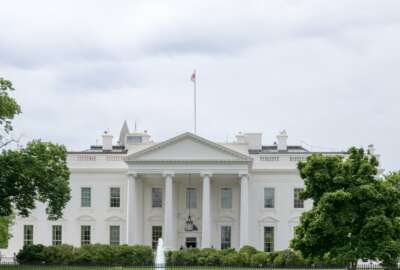

An API platform offers a single access point to a variety of services, without the hassle of multiple logins.
The day when a veteran can access health information, learn more about their benefits, and search cemetery records all in one place is one step closer.
According to a recent request for information from the Department of Veterans Affairs, the department is looking for companies’ input on its Lighthouse application programming interface (API) management platform.
“The purpose of Lighthouse is to establish the next generation open digital platform for veterans, accelerating the transformation in core domains of VA, such as health, benefits, burial and memorials,” the RFI said. “This platform will be a system for designing, developing, publishing, operating, monitoring, analyzing, iterating and optimizing VA’s API ecosystem. These APIs will allow VA to leverage its investment in various digital assets, support application rationalization, and allow it to decouple outdated systems and replace them with new, commercial, off the shelf, Software-as-a-Service (SaaS) solutions. It will enable creation of new, high-value experiences for our veterans, VA’s provider partners, and allow VA’s employees to provide better service to veterans.”
The department has its work cut out analyzing the RFI responses, but Terry Luedtke, acting chief architect for electronic health record modernization, told Federal News Radio the department will know it has a successful API platform if it benefits internal and external users.
“Internally there’s more rapid innovation and development and externally seeing that first app from outside VA, Luedtke said during Thursday’s Red Hat Government Symposium event in Washington, D.C.
An API works like a software middle man. It allows programmers to access particular data from a database or other source, and then through that program, users can incorporate the data with their own application.
“It’s sort of an evolution of the digital health platform [the Electronic Health Management Platform],” Luedtke said, adding the new platform would be one access point where veterans could visit and get their information, without having to get a new login for each service.
“The Lighthouse platform will also generate opportunities to a deploy a single customer relationship management (CRM) system that will help VA manage its relationship with the veteran through a single lens and provide highly sophisticated ways to engage with the veteran that includes, web, chat, video, phone and social media,” the RFI said.
Information that right now is spread out in silos, in legacy systems and databases, will be moved into the CRM system.
“That will aid VA staff in providing highly personalized experiences by tracking all engagement encounters through a common integrated platform and ensuring 100 percent closed-loop closure of veteran requests,” the RFI said. “This will provide a consistent experience for the veteran irrespective of the department that the veteran interacts with.”
According to the RFI, VA has historically used a traditional service-oriented architecture strategy. While there are benefits to this strategy, it’s also slow.
“VA’s objective is to distribute the development of endpoints so that a single team does not become a bottleneck,” the RFI said. “This also eliminates the need for a team to have expertise on every backend system before it can develop the endpoints. With this approach, each domain team, with expertise in their specific backend systems that support their domain would take a product management approach to their APIs, where the APIs are their products.”
The teams could get feedback from other internal teams or external ones, and “proactively offer APIs for this demand.”
“These APIs will then be published and accessible on the Lighthouse API platform,” the RFI said.
That proactive approach is what the Trump administration is interested in, said Matt Lira, the special assistant to the president for innovation policy and initiatives, under the White House’s Office of American Innovation.
Everyday citizen experience is defined by the modernization of government services, said Lira, who also spoke at the Red Hat event.
“I think of the daily reality that veterans encounter when they seek benefits, or the daily reality that someone applying for a program at CMS experiences, or countless other examples of people living their lives by the millions all over the country,” Lira said. “There’s policy and policy is extraordinarily important, but there’s a delta between public policy and public experience today, and that delta is being created in many ways by operational reality. The technology that you work on, the solutions that you try and develop, are what define that experience.”
Copyright © 2025 Federal News Network. All rights reserved. This website is not intended for users located within the European Economic Area.


